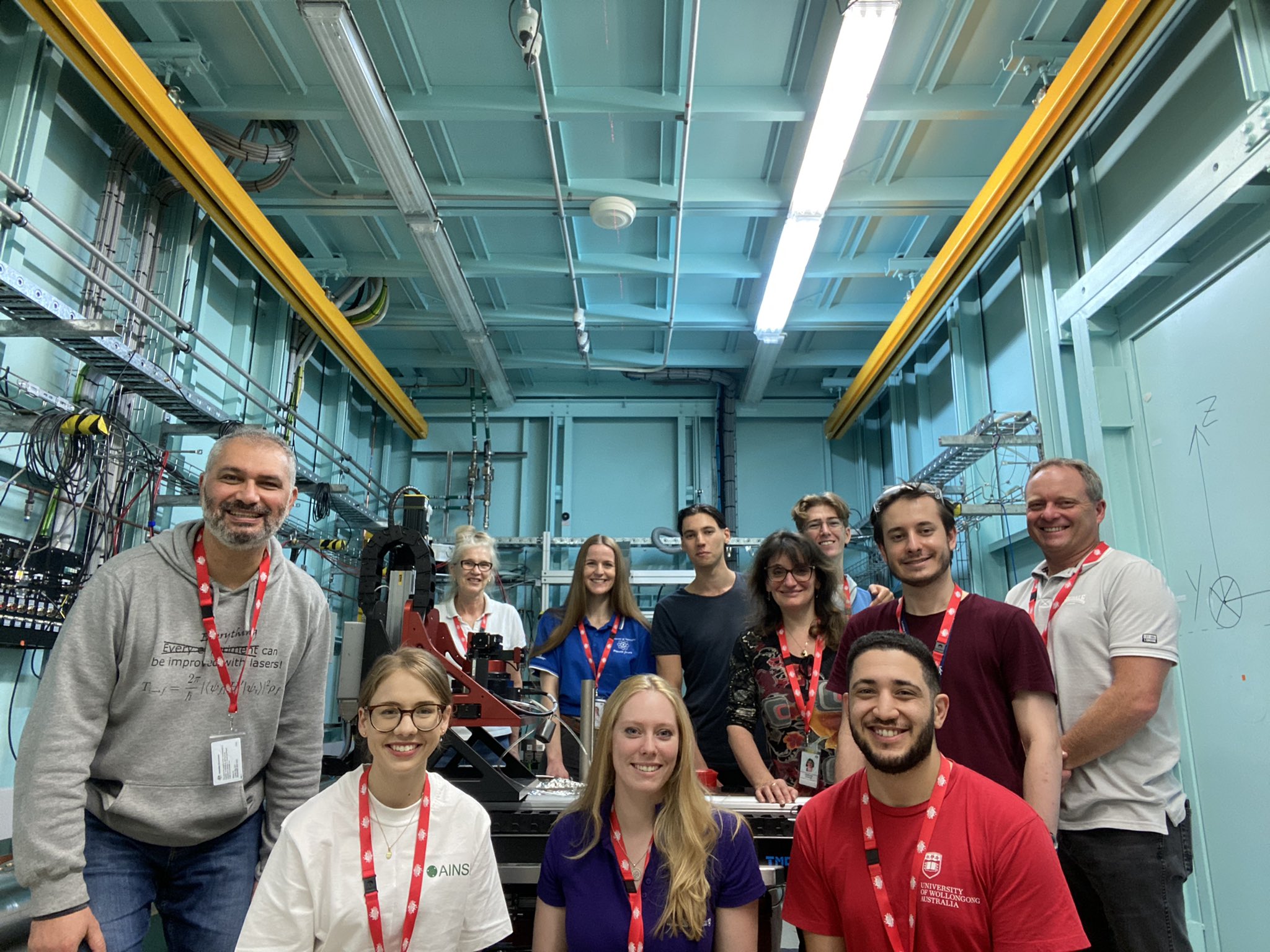May 27, 2022
МмГАґ«ГЅapp receives $100,000 donation to support brain cancer research
Donation coincides with Brain Cancer Awareness Month
The University of МмГАґ«ГЅapp’s (МмГАґ«ГЅapp) Centre for Medical Radiation Physics (CMRP) has received a $100,000 donation to fund research into breakthrough treatments for brain cancer.
The donation, made anonymously to mark National Brain Cancer Awareness month, will fund research that aims to improve brain cancer survival rates and patient quality of life through targeted multimodal therapies.
Head of the School of Physics at МмГАґ«ГЅapp said the $100,000 donation will accelerate the current work of the brain cancer Targeted Nano-therapies by the CMRP.
“The research our team has performed to date is producing astonishing results, but limited funding has restricted our progress in developing the new knowledge we have revealed in our pilot studies. This financial support will allow our researchers to further test their already promising outcomes, and if successful, will assist in fast tracking this work towards clinical trials,” Dr Lerch said.
Deputy Director of Radiation Oncology Medical Physics at Prince of Wales Hospital and МмГАґ«ГЅapp Honorary Associate Professor Stephanie Corde said a multidisciplinary approach is needed when it comes to curing brain cancer.
“It is extremely important to find ways of not only curing brain cancer, but doing it without long term side effects and this can only be achieved with a multidisciplinary approach,” Associate Professor Corde said.
The МмГАґ«ГЅapp research team, led by Head of CMRP Theme Targeted Nano-therapies Dr is exploring multimodal therapies combining conventional and synchrotron radiation with drugs or nanoparticles to increase the sensitivity of brain tumour cells to radiation.
Dr Tehei said the team’s ambition is to cure brain cancer without side effects.
“Unlike other cancers, there has been almost no improvement in the five-year survival rate of brain cancer patients in the past 20 years,” Dr Tehei said.
“Unfortunately, all current treatments are limited in progress by adverse cognitive and somatic side effects. These increased risks are even higher in children when the cancer occurs before intellectual and physical development is completed.
“A multidisciplinary approach is essential to address the limitations in brain cancer treatment and attack the disease simultaneously on several fronts.
“Without this generous gift, our research team would need at least twice as long to complete the research project goals. This support will help us give brain cancer patients not only a brighter future, but also a better quality of life.”
Dr Tehei’s team is investigating ways to spare healthy brain tissue during treatment while selectively targeting the cancer cells or tumours. The research also involves developing new treatment options that could reduce the total number of radiation treatments, increase the likelihood of destroying treatment-resistant brain cancer cells, improve healthy tissue recovery after treatment, and reduce cognitive and physical side effects.
The research provides unique medical physics training opportunities for several Targeted Nano-therapies PhD students including Sarah Vogel, Carolyn Hollis, Abass Khochaiche, Michael Valceski and Alice O’Keefe and undergraduate students Dylan Potter and Kiarn Roughley.
Essential results were obtained at several institutions including the Prince of Wales Hospital, the Illawarra Health and Medical Research Institute, МмГАґ«ГЅapp Molecular Horizons, the ANSTO, Australian Centre of Neutron Scattering, the Australian Synchrotron, and Monash Biomedical Imaging.
For more information about МмГАґ«ГЅapp’s Giving
